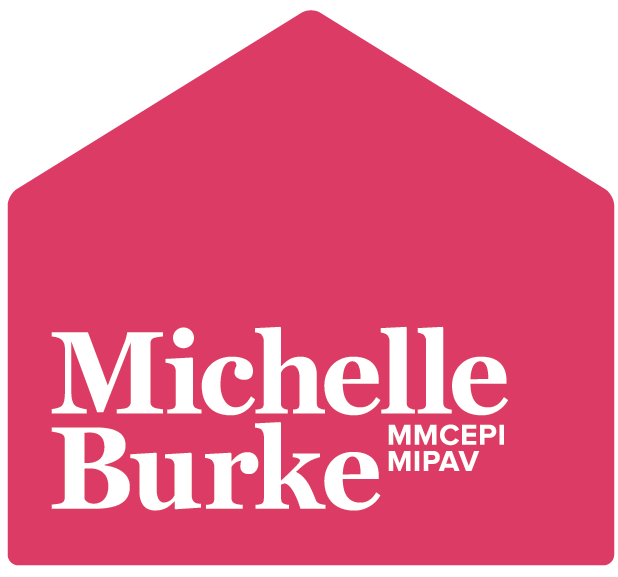A Guide to Setting a Property Purchase Budget
When buying a home, its an incredibly exciting time, looking at properties and exploring different options. However, one of the most vital factors in the process is to set a budget, which covers the cost of the property, stamp duty, estate agent fees, plus solicitor fees and a range of other costs that come with buying a home. In this post, Michelle Burke, an estate agent and auctioneer in Galway, Ireland, provides a guide to setting a budget, and covering important costs that arise when budgeting for a property purchase.
Why Setting a Budget Early on is Important
Before you start browsing property listings or booking viewings, it’s important to understand what you can realistically afford. Setting a budget early on, can keep your search focused, reduce unnecessary stress, and avoid wasting time on properties that are outside financial reach. Sometimes, people assume their budget only needs to cover the cost of the property, but in reality, buying a new home involves a much wider range of costs; including stamp duty, legal fees, broker fees, and more.
Without a clear budget that accounts for all of these factors, buyers can find themselves caught off guard by additional expenses and end up viewing homes they can’t realistically afford. By taking a comprehensive view of all the associated costs that come with buying a property, you’ll be better prepared and more confident throughout the buying process. Ultimately, a realistic budget allows buyers to make informed choices and avoid financial regret or disappointment.
Whilst many buyers focus solely on the cost of the property itself, it’s vital to understand that this is only one part of the overall expenses involved. Buying a home comes with a range of additional costs alongside the purchase price, and failing to account for them can lead to delays or financial pressure further down the line. Below, we take a closer look at the costs that go into your budget, and why it’s important to plan early and understand how much you can afford;
Property Price
The biggest part of the budget will naturally go towards the actual cost of the property. What you can afford will depend largely on income, savings, and how much you’re able to borrow through a mortgage. Most lenders require a minimum deposit (typically around 10% for first-time buyers), although this can vary between lenders, and your mortgage approval will be based on a multiple of your annual income. It’s a good idea to get mortgage approval in principle before beginning your search, as this gives a clear idea of your price range and allows you to bid confidently.
Stamp Duty
Stamp duty is a cost you need to factor into your budget, as it must be paid when purchasing a property in Ireland. It is a tax levied on the transfer of property ownership, and the amount payable depends on the property’s value. Stamp duty is usually 1% on the first €1 million, with higher rates applying above that. Although it’s a one-off payment, it’s essential to include it in your overall budget, forgetting to account for it can lead to significant unexpected costs at a later stage.
Property Survey and Valuation
A professional survey is highly recommended when finalising a purchase, as it helps identify any potential structural issues or hidden problems the property may have. While it isn’t mandatory, it’s a smart investment that could save you from unexpected repair costs further down the line. A standard survey typically costs between €300 and €800, depending on the company you choose. It’s a good idea to research a few survey providers, see if your real estate agent partners with any, and ensure you’ve budgeted for this cost in advance.
Legal Fees
You will also need to work with a solicitor to handle the legal side of the property purchase, such as title transfers, liaising with the seller’s solicitor, managing enquiries, and preparing contracts. Legal fees can vary depending on which solicitor you choose, but you can generally expect to pay between €1,250 and €2,000, excluding VAT and additional costs. These costs can differ based on factors such as the property’s value, location, and transaction complexity, so it’s a good idea to request a full quote upfront to ensure you’re fully informed.
Mortgage-Related Fees
A final cost to consider is mortgage-related fees. If you’re using a mortgage broker to assist with the mortgage process, they may charge a fee, so it’s important to check this with them before proceeding. Some lenders may also apply arrangement fees, particularly for fixed-rate mortgages, so be sure to confirm this too. Asking about any upfront or hidden charges, can ensure these costs are included in your budget planning from the outset.
Houses for Sale in Dunmore, Co Galway
Here at Michelle Burke, we make buying property in Dunmore, Co Galway, an effortless and stress-free experience, offering a professional and personalised service. We assist buyers in finding their right home across Galway, whether its a house, apartment, or cottage, and guide you through every stage of the journey towards securing the right property. With the expertise, professionalism, and local market knowledge at Michelle Burke, we take the hassle out of buying a home. making the process more efficient and straightforward. To speak with a member of the team about available property for sale in Dunmore, Co Galway, please get in touch with us today and we’ll be happy to provide more information.

